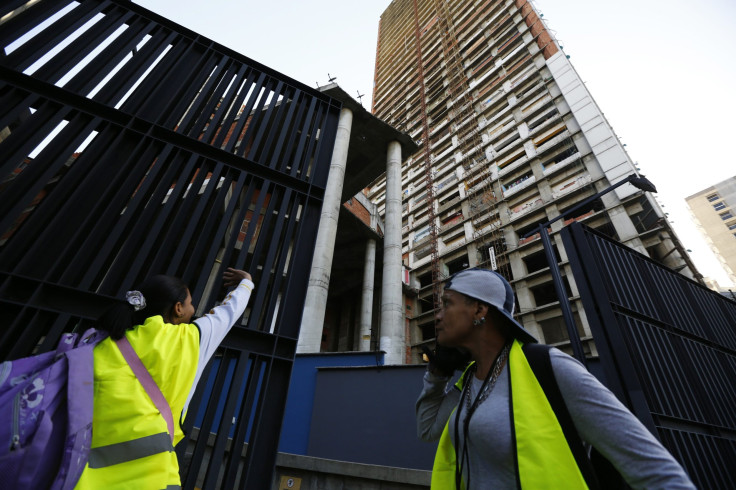Venezuela Evicts ‘Tower of David’ Squatters From World's Tallest Slum

The Venezuelan government this week began evicting squatters from the Tower of David, Caracas’s notorious 45-story “vertical slum” reputed to be the world's tallest squatter community. Meanwhile, the country is set to debate the fate of the building as rumors circulate that it could be demolished or turned into a financial center.
The relocation of the tenants, named Operation Zamora, began Tuesday as members of the Bolivarian National Guard started ushering families out from the building and moving them to housing projects in the city of Cúa, 23 miles (37 km) outside of Caracas. The government had negotiated the resettlement with tenants inside the building weeks before the operation began. The first phase of the eviction will clear out 160 of the more than 1,000 families occupying the building, with the operation set to complete in December. More than 3,000 people have occupied the half-finished, abandoned building over the past seven years.
The Tower of David was first constructed as the Confinanzas Center in the 1990s as the brainchild of investor David Brillembourg, who intended the building to become a financial hub of Caracas. In 1993, Brillembourg’s death and a banking crisis that devastated Venezuela’s finance sector ground construction to a halt, and the building remained unfinished. Thousands of squatters swarmed into the abandoned skyscraper in 2007, setting up an informal, self-governed community with shops and a central council. But the building also holds a reputation as a hotbed of urban crime, rife with drug trafficking, violence, and prostitution.
President Nicolas Maduro said Wednesday evening that the government would hold an open debate with experts and the general public on the future of the tower. The president said there were three main proposals: Demolishing the tower to build a new structure, remaking it into a housing complex, or turning it into a commercial or financial center. “We will make the fairest, most correct, and quickest decision possible,” he said.
Rumors that the tower would be turned into a financial complex were already swirling before the evictions took place: Opposition newspaper Tal Cual reported last week that the tower had already been handed over to Chinese banking companies. Ernesto Villegas, minister for the Revolutionary Transformation of Caracas, denied that the eviction was related to any agreement with Chinese firms, insisting the process was strictly for humanitarian reasons.
Still, speculation about China’s possible involvement has continued, fresh off Chinese President Xi Jinping’s visit to the country, which brought about agreements for $5.7 billion in Chinese loans. Members of the Venezuelan opposition have criticized deepening economic relations with China. “If we are the country with the largest oil reserves in the world, why do we need to become indebted to China?” tweeted former presidential candidate Henrique Capriles last week.
The Urban Think Tank, a group that spent two years researching the Tower of David, expressed concern over the possibility of the tower being razed or turned into a commercial entity. “We believe that the solution lies not in demolishing buildings and building anew, but in making a more efficient, strategic and appropriate use of what already exists to meet ever-changing needs,” it said in a statement on Wednesday.
“We hope that whatever redevelopment plan the government and investors formulate, they strive to turn Torre David into a site for social -- not just economic -- change within Caracas,” the group added.
© Copyright IBTimes 2025. All rights reserved.






















